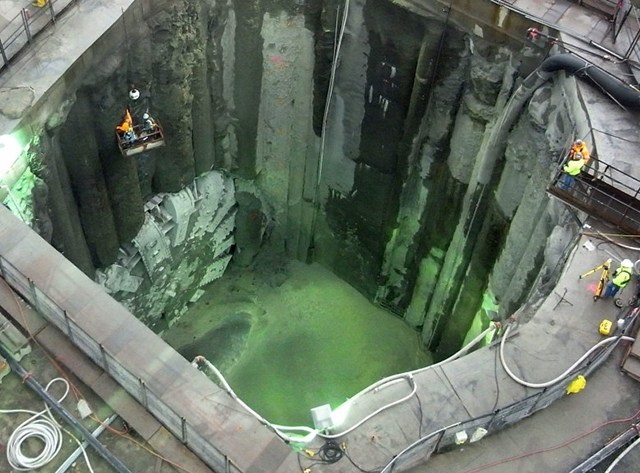
WSDOT
The recent revelation that a Seattle City Council candidate had been threatened with possible political retribution by a creepy real-estate developer demonstrates ably how debased our fair city’s internal politics has ironically become as a result of our longstanding civic aspirations towards “world-class” status.
Verily, it’s like a long-lost Edgar Allan Poe short story, historically transposed from nineteenth-century Boston to twenty-first-century Seattle.
The candidate in question was Jon Grant, the former executive director of the Tenants Union of Washington State, who is currently running for the citywide Council Position 8 as a grassroots challenger to establishment incumbent Tim Burgess. Grant was apparently told on October 10 by Brett Allen, an executive of the development firm Triad Capital Partners, that the company would make certain that a $200,000 independent expenditure committee set up specifically to attack Grant would “go away” if Grant would contact a Tenants Union attorney with whom he once worked and convince him to settle a lawsuit against Triad sponsored by the union. Triad had been contracted in 2007 by the City of Seattle for a major construction project downtown on city-owned land: namely, the $400 million Civic Square complex across from Seattle City Hall, which has now been delayed for years by the lawsuit.
After Grant refused Allen’s clumsy blackmail attempt and publicly revealed the Scorsesean encounter between himself and Allen, the incident was reported in The Seattle Times on October 12, immediately starting a full-scale Internet wildfire among Seattle’s political cognoscenti. Such was the strength and urgency of that discursive blaze that Mayor Ed Murray announced on October 14 that the City of Seattle will not renew its contract with Triad because of the intimidation tactics they apparently employed against Grant.
Lest we forget, such clandestine political chicanery involving big-money development projects is nothing new in Seattle.
Twenty long years ago, back in 1995, there was the infamous Pacific Place/Nordstrom parking garage deal, in which the City of Seattle basically gave away $23 million to the upscale corporate retail giant Nordstrom — all the while claiming to lack enough resources to establish a hygiene center then under proposal for the homeless downtown. That sleazy deal wasn’t revealed to the general public until December 1997, when the Times finally published a front-page investigative report on it — after it was far too late for concerned Seattle citizens to do anything to stop it.
More recently, of course, there’s the Bertha boondoggle, which was ultimately decided upon behind closed doors circa 2009 while most Seattleites outside the aforementioned cognoscenti were otherwise occupied. That sleazy deal notably created a foreboding pit downtown near Pioneer Square.
Students of Seattle’s political history will wisely note that the final fruits of such chicanery are typically presented to the public drenched in feel-good pabulum employing such tantalizing trigger terms as “bold,” “vibrant” and/or the aforementioned “world-class.”
Meanwhile, here circa 2015, there’s now yet another foreboding pit downtown across from Seattle City Hall awaiting proper development — preferably chicanery-free. What will eventually occupy the Civic Square site? More fugly condos? Or — as Jon Grant and his Tenants Union allies ultimately want — affordable housing for workers in our city’s downtown core? The answer likely awaits after December 31, when the results of the November 3 municipal elections are known, and when the city’s contract with Triad officially expires. Stay tuned.